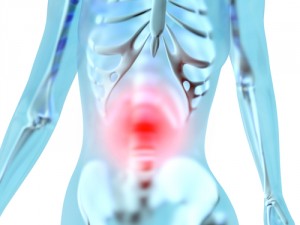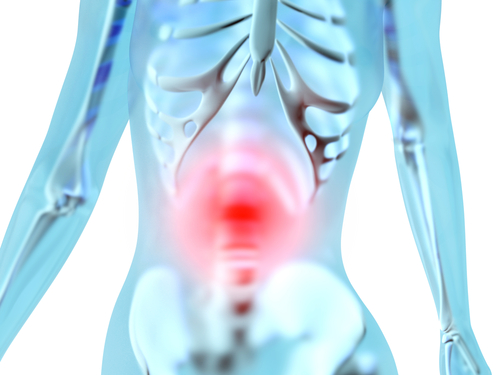 A new study entitled “Sphingosine-1-phosphatelyase down regulation promotes coloncarcinogenesis through STAT3-activatedmicroRNAs” discovered that a class of lipids present in our diet — sphingolipids — can promote or protect colon cancer depending on their metabolic fate, according to the study now published in the online October issue of The Journal of Clinical Investigation.
A new study entitled “Sphingosine-1-phosphatelyase down regulation promotes coloncarcinogenesis through STAT3-activatedmicroRNAs” discovered that a class of lipids present in our diet — sphingolipids — can promote or protect colon cancer depending on their metabolic fate, according to the study now published in the online October issue of The Journal of Clinical Investigation.
While a connection between inflammation and cancer has been long recognized, which players play a role in the transition from inflammation to carcinogenesis is still largely unknown. Patients with inflammatory bowel disease (IBD) are, in fact, a good example of this association, since they exhibit a higher incidence of colon cancer when compared to the general population. A potential underlying cause for the transition between inflammation to colon cancer might be found in industrialized countries’ diet, since IBD and colon cancer are known to be higher in these countries.
A team of researchers at the Children’s Hospital and Research Center Oakland (CHORI) tackled this point by studying colitis-associated cancer (CAC), an example of inflammation leading to carcinogenesis sequence. They studied bioactive sphingolipids, a class of lipids that are present in our diet, and that were shown to play a key role in carcinogenesis. The authors focused on a sphingolipid metabolite called sphingosine-1-phosphate (S1P), the final product generated by the activity of S1P lyase (SPL), the catalyzing enzyme of S1P degradation. During colon cancer onset and progression, S1P increases in the gut as a result of decreased activity of SPL.
The authors generated a mouse lacking SPL in the gut tissues, therefore exhibiting increased accumulation of S1P in the gut, and subsequently chemically induced colitis-associated colon cancer. They found increased inflammation and a higher incidence of tumors in these mice, when compared to control mice. With further studies, the team identified two tumor-suppressing proteins were silenced in the mutated mice.
However, sphingolipids from soy or other plants (known as sphingadienes) when fed to mice, since they cannot be metabolized to S1P, instead enhance the metabolism of S1P by up regulating SPL activity. This led to reduced inflammation and tumor incidence.
Thus, the work by Dr. Julie Saba, MD, PhD and her team showed that dietary sphingolipids can enhance or inhibit colon carcinogenesis via depending on their metabolic fate, if converted to S1P or not. Moreover, their work highlights to the potential use of sphingadienes as chemo preventive agents in IBD patients.

